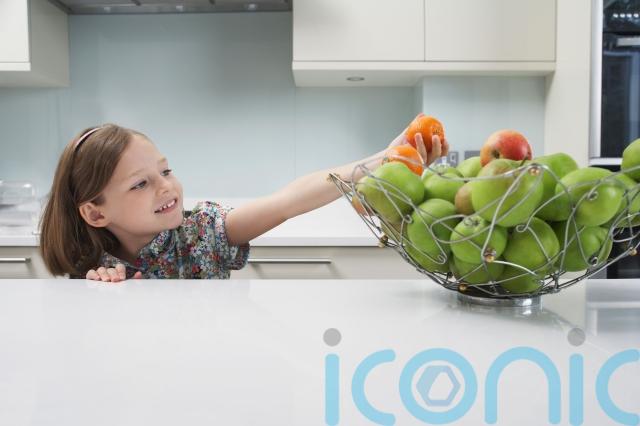
New research suggests that women who consume high amounts of ultra-processed foods (UPFs) are at higher risk of developing a growth that could lead to bowel cancer.
The study – which was funded by global research initiative Cancer Grand Challenges – analysed 29,105 women, with an average age of 45, and among this group 1,189 cases of early-onset adenomas were identified.
Adenomas are a type of growth, called polyps, in the bowel and can develop into cancer over a long period of time, according to Cancer Research UK’s website.
Researchers found that the women with the highest consumption of UPFs were 45% more likely to have these early-onset adenomas, compared to those with the lowest consumption of UPFs.
Ultra-processed food is a frequent subject of media discussion, so we got in touch with Rosie Carr, dietitian at healthy eating plan Second Nature, to help cut through all the noise.
She explained what ultra-processed food really is and offered some practical advice on how to cut back on it.
What is ultra-processed food?

“Ultra-processed foods are commercially manufactured food products that have undergone multiple industrial processes and typically bear little resemblance to their original ingredients,” explains Carr. “These foods contain not only sugar, oils, refined carbohydrates, but also substances rarely used in home cooking, such as emulsifiers, stabilisers, artificial flavours, colours and preservatives.”
Examples of ultra-processed foods that you might have in your cupboards include popular products such as fizzy drinks, pre-packaged biscuits, ready meals, instant noodles and crisps, says the dietitian.
“A key characteristic of UPFs is that they’re specifically engineered to hit what food scientists call the ‘bliss point’,” highlights Carr. “This is the perfect balance of salt, sugar and fat that makes these foods highly rewarding to our brains and often triggers cravings.”
How can we begin to reduce our consumption of ultra-processed foods?

Rather than dramatically overhauling your diet and going cold turkey on biscuits, Carr recommends a more gradual, sustainable approach.
“At Second Nature, we’ve found that people who focus on gradually including more whole foods rather than strictly avoiding UPFs tend to make more sustainable changes to their eating habits,” says the dietitian.
If you are looking to improve your eating habits, here are seven easy ways to gradually cut back on ultra-processed foods…
1. Make gradual, sustainable swaps
“Start by identifying your three most frequently consumed UPFs and find whole food alternatives to replace them with,” suggests Carr. “Small, consistent changes are more sustainable than attempting a complete diet overhaul.
“For example, swap breakfast cereal for porridge with fruit, or crisps for a small handful of nuts.”
2. Read ingredient lists, not just nutrition panels

“The nutrition panel won’t always tell you if something is ultra-processed,” says Carr. “Look for ingredients lists with items you recognise and could find in your own kitchen. A long list of unrecognisable ingredients is a red flag for ultra-processing.”
3. Prepare simple meals in advance
“Batch cooking doesn’t have to be complicated or time-consuming,” says Carr. “When you do have time to cook, make extra portions and freeze them for busy days. This provides a convenient alternative to ready meals when time is limited.”
4. Choose minimally processed convenience foods
“Not all convenient foods are ultra-processed,” says Carr. “Tinned beans, frozen vegetables, plain yogurt, tinned fish and pre-cooked rice can all save time, while still being minimally processed. These make excellent foundations for quick, nutritious meals.”
5. Create a supportive food environment

“Store UPFs out of sight and make whole foods more visible and accessible,” suggests Carr. “Keep fruits in a bowl on the counter, pre-portion nuts or cut vegetables for easy snacking, and rearrange your kitchen to make cooking more convenient.”
6. Develop a menu of simple meals
“Build a collection of five to 10 simple meals using minimally processed ingredients that you can prepare quickly and easily,” recommends Carr. “Having these go-to options reduces the temptation to rely on UPF alternatives when you’re tired or hungry.”
7. Be realistic and focus on progress, not perfection
“Most of us will continue to eat some UPFs, and that’s completely normal,” says Carr. “Rather than aiming for complete elimination, which is neither necessary nor realistic for most people, focus on increasing the proportion of whole foods in your diet. Even replacing 20% of UPFs with whole foods can have meaningful health benefits.”
Subscribe or register today to discover more from DonegalLive.ie
Buy the e-paper of the Donegal Democrat, Donegal People's Press, Donegal Post and Inish Times here for instant access to Donegal's premier news titles.
Keep up with the latest news from Donegal with our daily newsletter featuring the most important stories of the day delivered to your inbox every evening at 5pm.